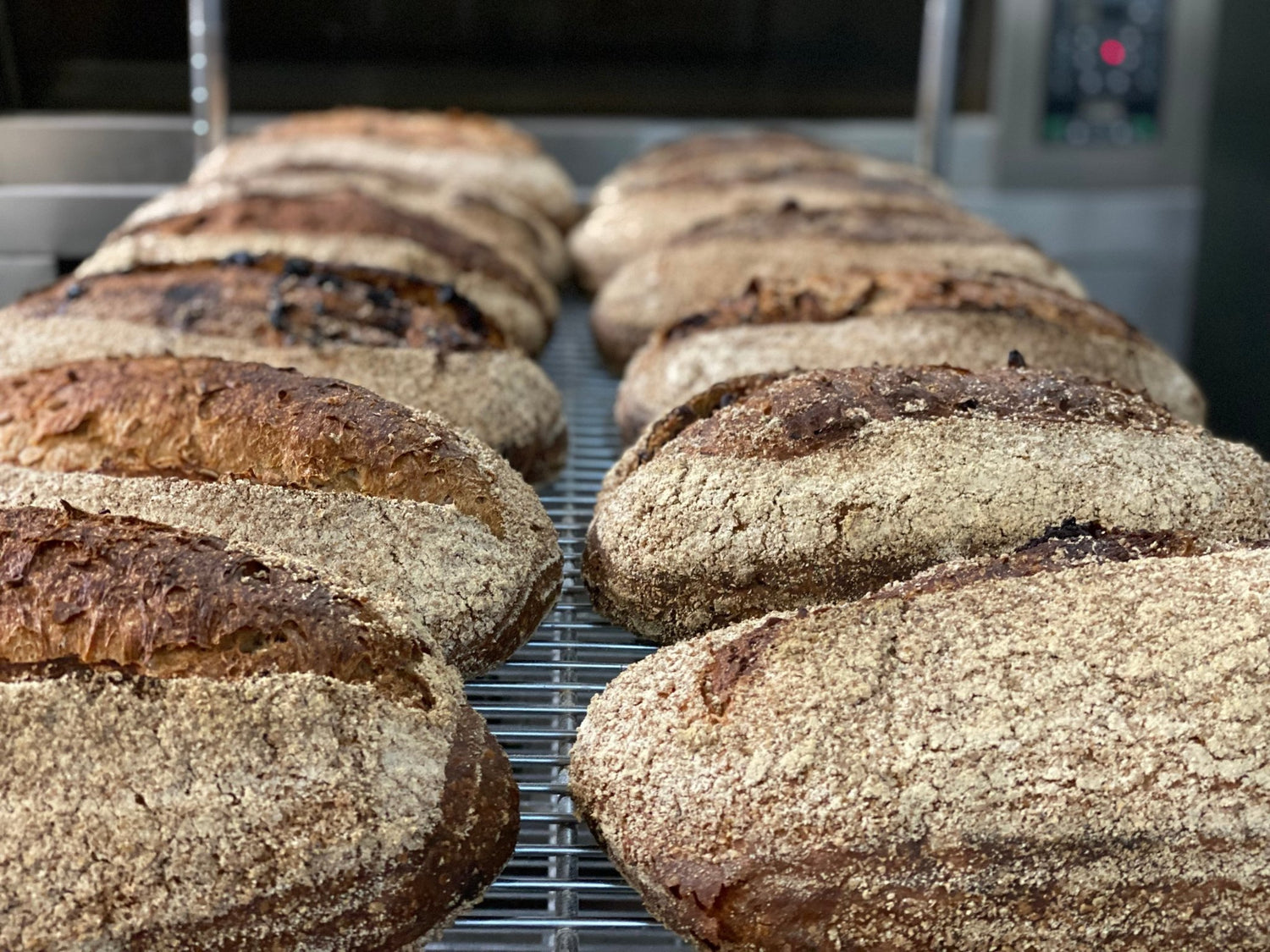Scientists and engineers often talk about "first principal thinking" which means reverse-engineering complicated processes into basic elements and then reassembling them from the ground up. We'll use this thinking method for bread.
Bread is all about the dough, and the dough is all about the flour. So what is flour all about and how do we decide which one to use?
When I was starting out in the world of baking I thought, why re-invent the wheel if it already exists? I decided to visit a few bakeries that make "artisanal sourdough bread" and looked for the flour brands they had around their open kitchens. One brand that appeared most often was "King Arthur - Sir Galahad". I looked further into that product and noticed that it was used by many other bakers (and heavily advertised to bakers by King Arthur), which appears to be the best in the industrial flour category. So I ordered a few bags and started testing it.
The flour seemed magical and making bread was significantly easier than working with other flours I had tried. The results were very consistent which made it easy for me to get excited about the flour. But then I thought, why is that happening? Is this flour designed to work this way or is the wheat grain they use naturally so good?
Of course the answer was that it was designed by scientists for "artisan bakers". Essentially, it is an "enriched flour" as it has a list of ingredients listed. I looked more into the reasons why they were adding things like niacin, reduced iron, thiamine mononitrate, riboflavin, folic acid, etc., and I discovered that it was simply part of the industrial process for milling high quantity of flour.

The issue with large scale industrial manufacturing is largely 3 fold:
1. Large scale production. When they put raw ingredients on one end of the production line, a finished product has to come on the other end. They cannot risk a "bad batch" since their batches are large and managed by only a few people. This requirement also guides them in equipment selection which is way they use roller mills and not stone mills.
2. Consistency. Large producers are in the business of consistency, and the only way the achieve that is with additives which are mostly derived through a chemical process. Wheat varieties change throughout the year and each variety has different properties. They've found the chemicals that can re-balance the flour and they just adjust the amounts they input based on the grain qualities.
3. Logistics. Large producers have a complicated supply chain that goes from factory to distributor to smaller distributor to baker, and eventually to the consumer. The flour has to have certain keeping qualities and be able to withstand different climates and longer shelf life.
When I thought about these reasons I noticed that none of them were focused on the end consumer, instead, they were business reasons. So I had to keep looking for a better solution and one that is focused on the consumer so I kept learning.

I then stumbled upon a few smaller family owned mills and discovered a total opposite approach. They talked about:
1. Wheat berries they have in different seasons and the impact each had on baking techniques.
2. The stone mill they have and how it doesn't overheat the grain during the milling process and produces a flour that keeps most of its nutrients (as compared to grains milled on industrial roller mills).
3. They mill the whole wheat berry and then they sift it so that all of the nutrients come from the wheat itself (and no need to add back anything), in other words it is a whole grain flour.
4. Milling to delivery time. They mill to order, which means freshly milled flour every time.

All of that was super exciting but also problematic. It meant that with each batch of freshly milled flour we receive, we'd have to adopt our recipe more than once as we learn the flour and as it settles. Most bakers just don't want to deal with it and most go for the easy way and use King Arthur.
So why does it matter?
There are two main reasons why we use whole grain (not whole wheat) stone-milled flour in our bakery:
1. It is pure, just like nature intended it to be. It comes from a believe that our body is better able to benefit from natural nutrients and better able to digest, unlike with chemically derived nutrients and other additives.
2. It has better nutritional value. More nutrients are present in the stone-milled flour as it uses the whole berry, and we know that most nutrients are in the germ of the wheat (which is totally removed in most industrial flours).
What are your thoughts on it? Does it matter to you? Feel free to comment - we'd love to hear from you.



2 comments
Do you use 100% fresh whole grain, stone ground flour
Hello ~ Yes 100% makes a difference ‼️ My educational studies are in Nutrition, the culinary arts and ingredients science… as the founder of an app The Healthy Pantry by Nxtnutrio, that is used by people all over the world… I am thrilled to see articles like this where people care to take the time, consideration, and commitment to creating products… For people like me… who appreciate, and consider what they choose to eat… enjoy, share with others… 🙌 Also consider this… Wheat crops that are not grown organically … with care… at the end of the growing season farmers use glyphosate on the fields (of conventional wheat crops) after harvest to prepare the fields for the next crop… same with garbanzo beans… so if the wheat is not known to be organically grown… which requires us to be talking to our farmers that produce that crop, or it is certified organic… the glyphosate residues in the conventional wheat products are high…